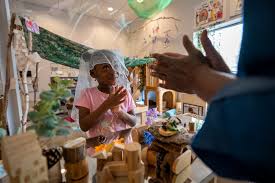Celebrating Diversity: The Rich Tapestry of Cultural Ceremonies

The Significance of Ceremonies in Different Cultures
Ceremonies play a crucial role in various cultures around the world. These rituals and traditions hold deep significance and are often passed down from generation to generation. Let’s explore the importance of ceremonies in different cultures:
Weddings
Wedding ceremonies symbolize the union of two individuals and their families. Each culture has its unique wedding customs, from elaborate traditional ceremonies to modern celebrations. These ceremonies often involve rituals, blessings, and symbolic gestures that highlight the commitment between the couple.
Religious Ceremonies
Religious ceremonies are an integral part of many faiths and serve as a way for followers to connect with their spirituality. These ceremonies may include prayers, hymns, offerings, and other rituals that hold sacred meaning within the religious community.
Coming-of-Age Ceremonies
Coming-of-age ceremonies mark significant milestones in a person’s life, such as transitioning from childhood to adulthood. These ceremonies vary across cultures and may include initiation rites, symbolic acts, or tests that signify readiness for new responsibilities.
Funerary Ceremonies
Funerary ceremonies are held to honor and remember the deceased. These rituals help provide closure for loved ones and offer a way to pay respects to the departed. Funeral customs differ widely across cultures but often involve prayers, eulogies, and burial or cremation rites.
In conclusion, ceremonies serve as important cultural touchstones that help communities celebrate life’s milestones, express shared beliefs, and honor traditions. By participating in these rituals, individuals can connect with their heritage and create lasting memories that carry on through generations.
The Benefits of Ceremonies: Tradition, Community, and Connection
- Ceremonies provide a sense of tradition and cultural identity.
- They help bring communities together and foster social cohesion.
- Ceremonies mark important milestones in individuals’ lives.
- They offer a way to express emotions and celebrate achievements.
- Ceremonies can strengthen family bonds and relationships.
- Participating in ceremonies can create lasting memories for individuals and families.
- They provide an opportunity for reflection, gratitude, and spiritual connection.
- Ceremonies often promote a sense of belonging and unity within a group.
Challenges of Ceremonies: Time, Tradition, and Authenticity
- Ceremonies can be time-consuming and require extensive planning, which may add stress to participants.
- Some ceremonies may perpetuate outdated or discriminatory practices that do not align with modern values.
- Participation in ceremonies can sometimes feel obligatory, leading to a lack of genuine emotional connection or meaning.
Ceremonies provide a sense of tradition and cultural identity.
Ceremonies play a vital role in preserving tradition and fostering cultural identity within communities. By participating in ceremonies that have been passed down through generations, individuals are able to connect with their cultural heritage and uphold the values and customs that define their community. These rituals serve as a powerful reminder of shared history and beliefs, helping to strengthen bonds among community members and instill a sense of pride in one’s cultural identity. Through ceremonies, traditions are upheld, stories are passed on, and a strong sense of belonging is cultivated, contributing to the richness and diversity of our global cultural tapestry.
They help bring communities together and foster social cohesion.
Ceremonies play a vital role in bringing communities together and fostering social cohesion. By participating in shared rituals and traditions, individuals within a community develop a sense of belonging and unity. These ceremonies create opportunities for people to connect, bond, and strengthen relationships with one another. Through collective participation in ceremonies, communities can celebrate their cultural heritage, values, and beliefs, ultimately promoting solidarity and mutual understanding among its members. The shared experience of ceremonies helps build a sense of camaraderie and support within the community, contributing to its overall cohesiveness and resilience.
Ceremonies mark important milestones in individuals’ lives.
Ceremonies play a significant role in marking important milestones in individuals’ lives. Whether it’s a wedding, graduation, religious initiation, or coming-of-age celebration, ceremonies provide a symbolic way to acknowledge and commemorate significant events. These rituals not only serve as a formal recognition of personal achievements or life transitions but also create lasting memories that hold deep meaning for the individuals involved. By honoring these milestones through ceremonies, people can reflect on their journey, celebrate their growth and accomplishments, and strengthen their connections with loved ones who share in these special moments.
They offer a way to express emotions and celebrate achievements.
Ceremonies provide a meaningful outlet for individuals to express their emotions and commemorate important achievements. Whether it’s celebrating a joyful union in a wedding ceremony or honoring a significant milestone in a graduation ceremony, these rituals allow people to share their feelings of happiness, pride, gratitude, and more with others. By coming together in a ceremonial setting, individuals can amplify the significance of their emotions and accomplishments, creating lasting memories and fostering a sense of community and connection among participants.
Ceremonies can strengthen family bonds and relationships.
Ceremonies have the remarkable ability to strengthen family bonds and relationships by providing a shared experience that fosters connection and unity. Whether it’s a wedding, a holiday celebration, or a milestone event, participating in ceremonies together can create lasting memories and deepen the emotional ties between family members. These rituals often involve traditions, rituals, and customs that are passed down through generations, reinforcing a sense of belonging and heritage within the family unit. By coming together to honor and celebrate important moments through ceremonies, families can build stronger connections and create a foundation of love and support that lasts a lifetime.
Participating in ceremonies can create lasting memories for individuals and families.
Participating in ceremonies can create lasting memories for individuals and families. These special occasions provide opportunities for loved ones to come together, celebrate milestones, and create cherished moments that will be fondly remembered for years to come. Whether it’s a wedding, a religious ceremony, a coming-of-age ritual, or a funerary service, the shared experience of participating in a ceremony can strengthen bonds between family members and friends. These memories not only serve as reminders of significant events but also help preserve cultural traditions and values within the family unit.
They provide an opportunity for reflection, gratitude, and spiritual connection.
Ceremonies offer a valuable opportunity for individuals to engage in reflection, express gratitude, and foster spiritual connections. Through the structured and intentional nature of ceremonies, participants are encouraged to pause, contemplate, and appreciate the significance of the moment or event being celebrated. These rituals provide a space for introspection and mindfulness, allowing individuals to acknowledge their blessings, achievements, or relationships with a sense of reverence and appreciation. Moreover, ceremonies often incorporate spiritual elements that enable participants to connect with their inner selves, higher powers, or the collective consciousness of a community, fostering a deeper sense of purpose and connection to something greater than oneself.
Ceremonies often promote a sense of belonging and unity within a group.
Ceremonies have the remarkable ability to foster a sense of belonging and unity within a group. By participating in shared rituals and traditions, individuals feel connected to one another and to their community. Whether it’s a wedding, religious ceremony, or cultural celebration, the act of coming together to commemorate a significant event creates bonds that strengthen relationships and build a sense of solidarity. Through ceremonies, people can experience a profound sense of connection and belonging that transcends individual differences and unites them as part of something greater than themselves.
Ceremonies can be time-consuming and require extensive planning, which may add stress to participants.
Ceremonies can be time-consuming and require extensive planning, which may add stress to participants. From coordinating schedules and logistics to ensuring all details are in place, the preparation for ceremonies can be demanding and time-intensive. Participants may find themselves overwhelmed with the pressure to meet expectations and make sure everything runs smoothly, leading to heightened stress levels. The need for meticulous planning and coordination can detract from the enjoyment of the event itself, turning what should be a meaningful experience into a source of anxiety for those involved.
Some ceremonies may perpetuate outdated or discriminatory practices that do not align with modern values.
Some ceremonies may perpetuate outdated or discriminatory practices that do not align with modern values. In certain cultural or traditional ceremonies, there may be rituals or customs that promote inequality, prejudice, or exclusion based on factors such as gender, race, or social status. These practices can perpetuate harmful stereotypes and reinforce divisions within communities. It is important to critically examine the significance of each ceremony and consider whether certain aspects need to be updated or eliminated to ensure inclusivity and respect for all individuals in today’s diverse society.
Participation in ceremonies can sometimes feel obligatory, leading to a lack of genuine emotional connection or meaning.
Participation in ceremonies can sometimes feel obligatory, which can diminish the genuine emotional connection or meaning that these rituals are meant to evoke. When individuals feel pressured or compelled to take part in ceremonies, their participation may lack sincerity and authenticity. This sense of obligation can detract from the intended purpose of the ceremony, resulting in a superficial experience that fails to resonate on a deeper emotional level. In such cases, the true significance and value of the ceremony may be lost, leading to a sense of detachment and disconnection from the ritual’s intended meaning.


